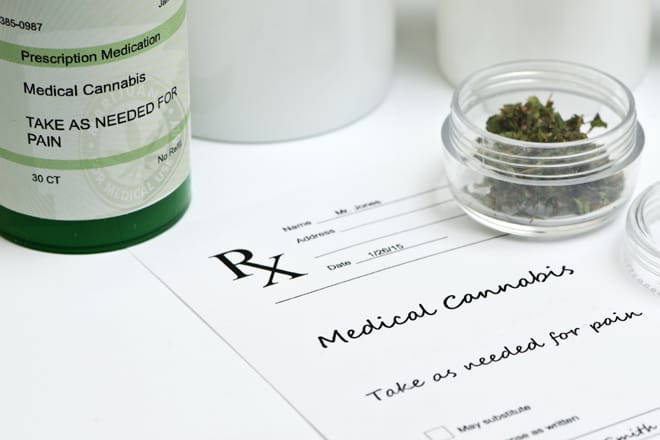
Categories

This is part of a series of articles by Wright Lindsey Jennings’ labor and employment team examining key trends for employers and the workplace in 2019. The series was featured in Arkansas Business.
Medical Marijuana in Arkansas: Where Things Stand
When the voters of Arkansas passed the Arkansas Medical Marijuana Amendment way back in November 2016, businesses were not quite sure how to deal with the issue. Many questions were being asked, including a) would all Arkansas businesses with employees be covered, b) what rights and protections would employees and businesses have, and c) when would medical marijuana be available?
The passage of Act 593 by the General Assembly in 2017 provided answers to the first two questions. The remaining question – when will medical marijuana be available – still is up in the air for a variety of reasons, but many expect medical marijuana will be available in state-sanctioned dispensaries sometime in the first or second quarter of 2019.
Employer Rights and Obligations Regarding Medical Marijuana
The Arkansas Medical Marijuana Amendment created a new protected category of employees – those with past or present medical marijuana certifications. Discriminating against someone in this new protected class is akin to discriminating against someone on account of race, gender or disability under state law. In early 2017, the General Assembly passed and Governor Hutchinson signed into law Act 593, which modified the Amendment and provided significant protections for employers (now specifically defined as those with 9 or more employees in Arkansas), including:
- Allowing employers to have and enforce drug-free and substance-abuse testing policies that apply to both applicants and employees;
- Permitting the discipline of an employee if there is a good faith belief that he or she used or possessed medical marijuana on site or during work hours in violation of an employer’s policy;
- Permitting the discipline of an employee if there is a good faith belief that he or she was under the influence of medical marijuana on site or during work hours in violation of an employer’s policy; and
- Allowing an employer to exclude a person (an employee or an applicant) from a safety-sensitive position if there is a good faith belief that person is a current user of medical marijuana.
But, a word of caution — with the mix of state and federal employment law issues swirling around medical marijuana, businesses need to be very careful how they treat employees with medical marijuana certifications. Two examples — anyone possessing a medical marijuana card may very well have a disability covered by the Americans with Disabilities Act and the Arkansas Civil Rights Act or a serious health condition under the Family and Medical Leave Act. Knee-jerk personnel decisions based solely on what Act 593 says will not serve employers well.
The Big Question: When Will Medical Marijuana Be Available?
When Arkansas voters approved the Medical Marijuana Amendment in November 2016, many thought medical marijuana would be available to Arkansans by the end of 2017. As the complexity of the process became apparent, that date was pushed back multiple times. Two big parts of the process have been the selection of the cultivation facilities and the selection of the dispensaries.
The selection of the cultivation facilities drew a lot of attention in early 2018, including some legal challenges. Surprisingly, those legal challenges did not delay the process significantly. In March 2018, a Pulaski County Circuit Court Judge concluded that the Medical Marijuana Commission’s licensing process and decisions relating to cultivation facility licenses “violated Amendment 98 to the Arkansas Constitution . . . violated due process of law, resulted from improper procedure, and were arbitrary and capricious.” The Arkansas Supreme Court reversed that decision, basically finding that the plaintiffs jumped the gun by filing their complaint too early. See Arkansas Department of Finance and Administration, et al., v. Naturalis Health, LLC, et al., No. CV-18-356 (June 21, 2018). The most interesting part of the Supreme Court’s ruling was Chief Justice Kemp’s concurring opinion:
This court will not rewrite administrative-agency rules, nor will it substitute its judgment and discretion for that of the agency. The court may, however, reverse an agency decision if the substantial rights of the petitioner have been prejudiced because the administrative findings, inferences, conclusions, or decisions are in violation of constitutional provisions or made upon unlawful procedure. See Ark. Code Ann. § 25-15-212(h)(1), (3) (Repl. 2014).
The MMC has a constitutional duty to adopt rules necessary for its “fair, impartial, stringent, and comprehensive administration” of the Arkansas Medical Marijuana Amendment. See Ark. Const. amend. 98, § 8(d)(3). I urge the MMC to review its rules and procedures and to cure any deficiencies.
(emphasis added). I’d call that a warning shot.
Regardless of that warning shot, the Commission decided to forge ahead with its five original picks, and construction of some of the cultivation facilities is well underway. However, those cultivation facilities may not be in the clear yet — complaints and protests concerning their selection have been turned over to the Alcohol Beverage Control Enforcement Division for “investigation and, if warranted, adjudication by ABC.” So, stay tuned – things could get interesting if one or more of the successful cultivation facility applicants are disqualified or sanctioned for a violation of the rules.
By contrast, the process for the selection of the dispensaries has been relatively smooth. The Commission hired an outside consultant to score the 200+ dispensary applications, and the consultant submitted its recommendations in mid-December. While court challenges are always a possibility, we expect the Commission will review the recommendations and name the successful dispensary applicants in January. By the way, Arkansans won’t see a dispensary on every street corner – each of the 8 districts in the state initially will have only 4 dispensaries, and those districts range in size from 4 counties (districts in central and northwest Arkansas) to over a dozen counties.
Getting Prepared
With all these moving parts, one can wonder whether medical marijuana will ever become a reality. It will, and relatively soon – probably in the first or second quarter of 2019. Once medical marijuana becomes available, Arkansas employers will be faced with all sorts of issues, such as how to handle applicants and employees who have been certified for medical marijuana use, whether to allow work-time medical marijuana use in some jobs or none at all, and how to determine if a job should be characterized as “safety-sensitive.” Mistakes in handling employee use of medical marijuana will result in lawsuits and the types of damages and costs one sees in typical discrimination litigation. Think through the various scenarios, make sure you understand the various employment laws that could apply, get your medical marijuana policy prepared, and be ready to make a level-headed decision on how to react.
Stuart Jackson has been practicing in the labor and employment field for over twenty-six years and is a partner on Wright Lindsey Jennings’ Labor & Employment Team. As of late, he has been focused on helping businesses prepare for medical marijuana and defending wage and hour collective/class actions. You can contact him at wjackson@wlj.com.











































































